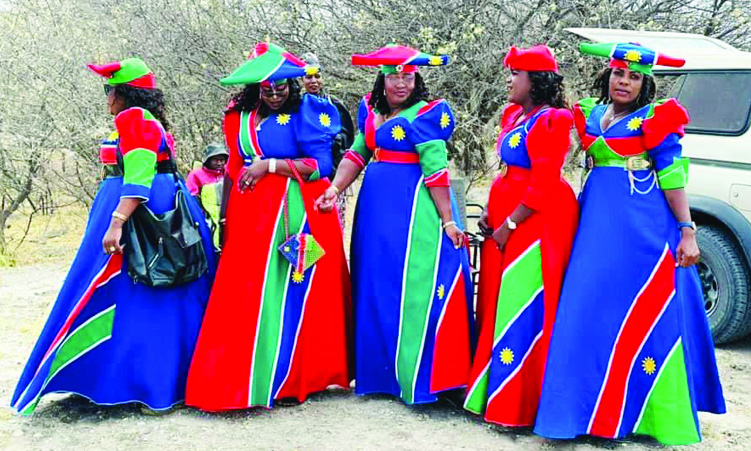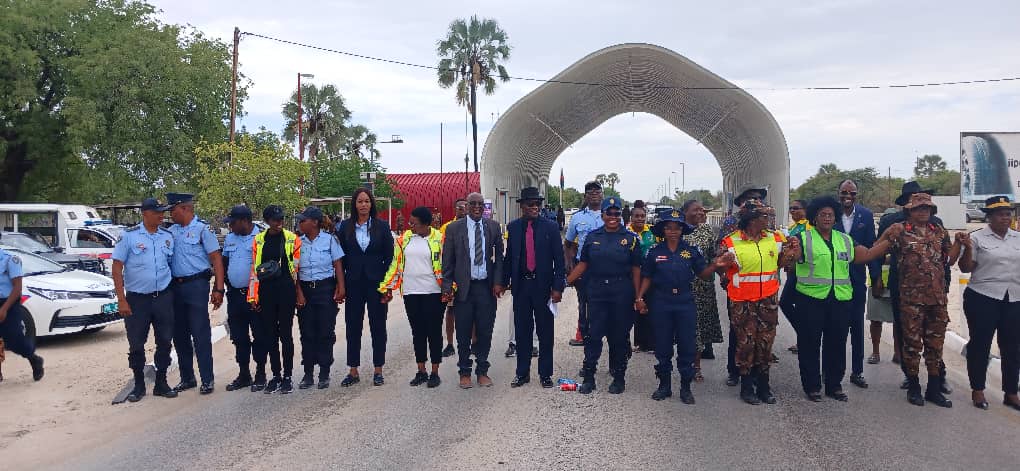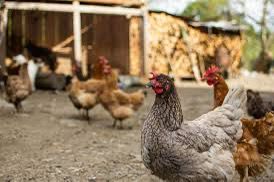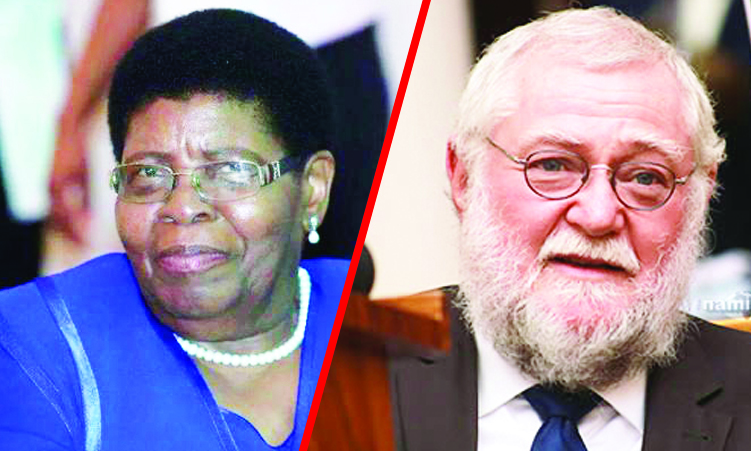The homecoming kit of 98 Namibians from Botswana includes land, social grants, healthcare, new identification documents and enrolment in state schools.
The repatriation of the descendants of Namibians who fled the 1904-1908 genocide is the realisation of resolutions of the second land conference in 2018 to identify alternative land in communal and commercial areas for their resettlement.
The new citizens were welcomed into Namibia at the Dobe border post in the Otjozondjupa region on Friday.
Dressed in traditional Ovaherero dresses in the signature colours and design of Namibia’s national flag, young and old held hands as they stepped onto their ancestral land.
The group was welcomed by ministers Calle Schlettwein, Albert Kawana, Itah Kandjii-Murangi, as well as executive director Ndiyakupi Nghituwamata.

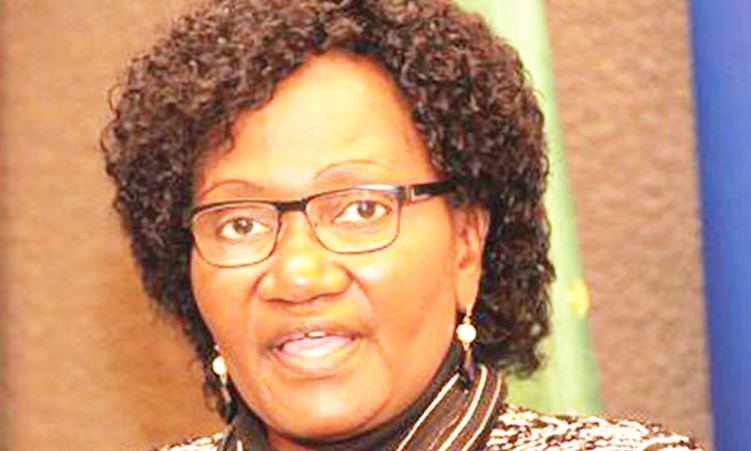
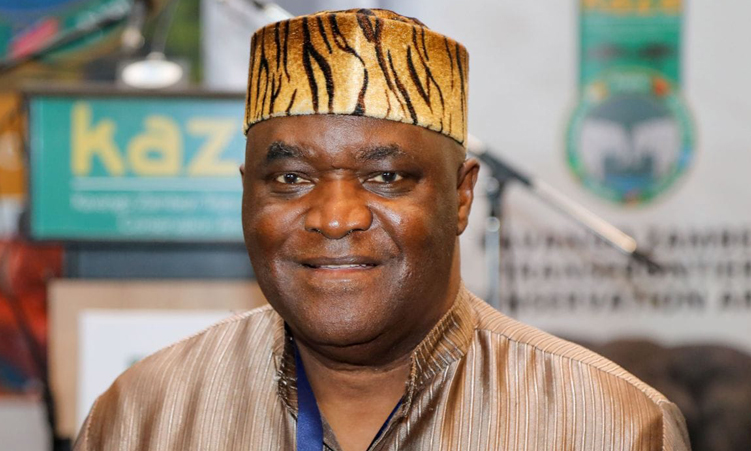
They will settle in the Omaheke, Otjozondjupa and Hardap regions on five commercial farms, amounting to 23 000 hectares (ha), at the cost of N$58,7 million.
Kawana said the new Namibians were provided national documents, such as ID cards and passports, for easy mobility within and beyond Namibia.
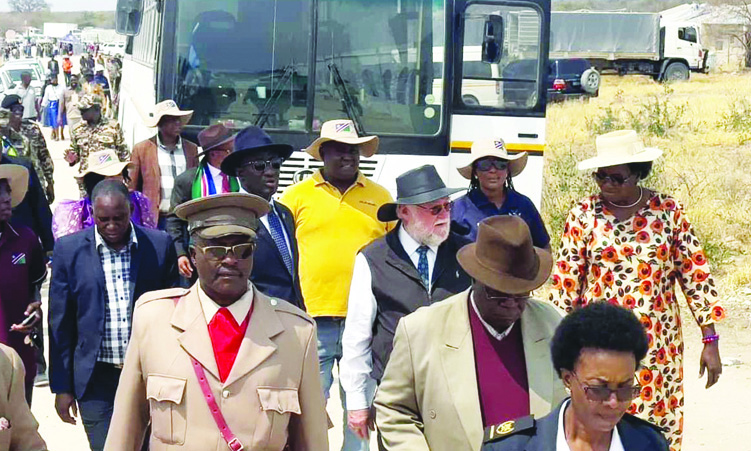
“The government has granted custom duty exemption for the importation of their goods, while environmental levies on motor vehicles have been waived,” Kawana said.
Pupils will be enrolled in schools “without delay”, while grants will be applicable to pensioners, orphans and vulnerable children, he added.
In addition, the government will provide a cushion for the new residents’ first three months in the country.
They will also have access to state healthcare facilities.
“The Ministry of Health and Social Services must register our citizens with medical conditions in order to secure the continuation of their treatment,” he added.
Kawana said the government’s first repatriation efforts of those who “have been successfully integrated into the Namibian community” date back to 1993.
Schlettwein emphasised that it is the government’s mandate to restore the land that was taken away from these citizens.
“So, we will be in charge of the process for some time after this event, so that we facilitate the integration of these people back into either their traditional areas or anywhere in Namibia. They are now Namibian citizens.”
Schlettwein said they are free to go anywhere.
“We will look after them for three months. We will see where they land and where we can help. But the registration of children for schools, for the elderly, for pensioners, for land, that is all done at the reception area, and we will do that as quickly as possible,” he added.
Botswana’s minister of labour and home affairs Anna Mokgethi on Friday said the exercise dates back to 1956.
“As long back as 1956, these communities have always expressed an overwhelming response and desire to relocate to Namibia.”
Mokgethi said during a state visit to Botswana by president Sam Nujoma, after Namibia attained independence, around September 1990, he and Botswana’s president at the time Ketumile Masire agreed that these communities should be allowed to relocate to Namibia.
Since the first repatriation exercise in 1992, a total of 1 106 people were settled in Namibia, Mokgethi added.
“The remarkable difference between the initial relocation and this very one is that they were not carried out with such diligence and thorough coordination as was envisaged,” she said.
Both Botswana and Namibia “reflected on that, and a series of activities were embarked on to come up with the planning that has yielded this event, with input from the relocatees themselves”, said Mokgethi.
Otjozondjupa governor James Uerikua on Friday said farming land will be provided through the Ministry of Agriculture, Water and Land Reform for those coming with livestock.
He noted that the processes and procedures will be spearheaded by the minister of agriculture to ensure they are conducted in an orderly manner that is beneficial to all.
Uerika said the repatriation exercise will be conducted in two phases, with the first group without livestock having arrived on Friday.
“The second phase will have more logistical requirements, as it is a group that is going to be relocating with livestock,” he said.
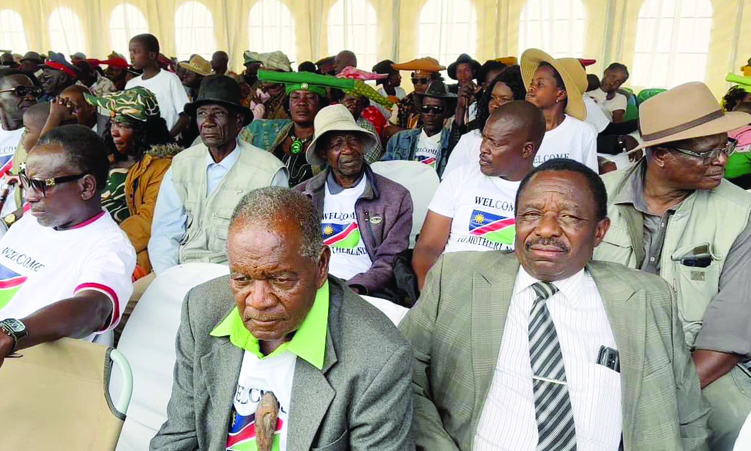
Stay informed with The Namibian – your source for credible journalism. Get in-depth reporting and opinions for
only N$85 a month. Invest in journalism, invest in democracy –
Subscribe Now!


